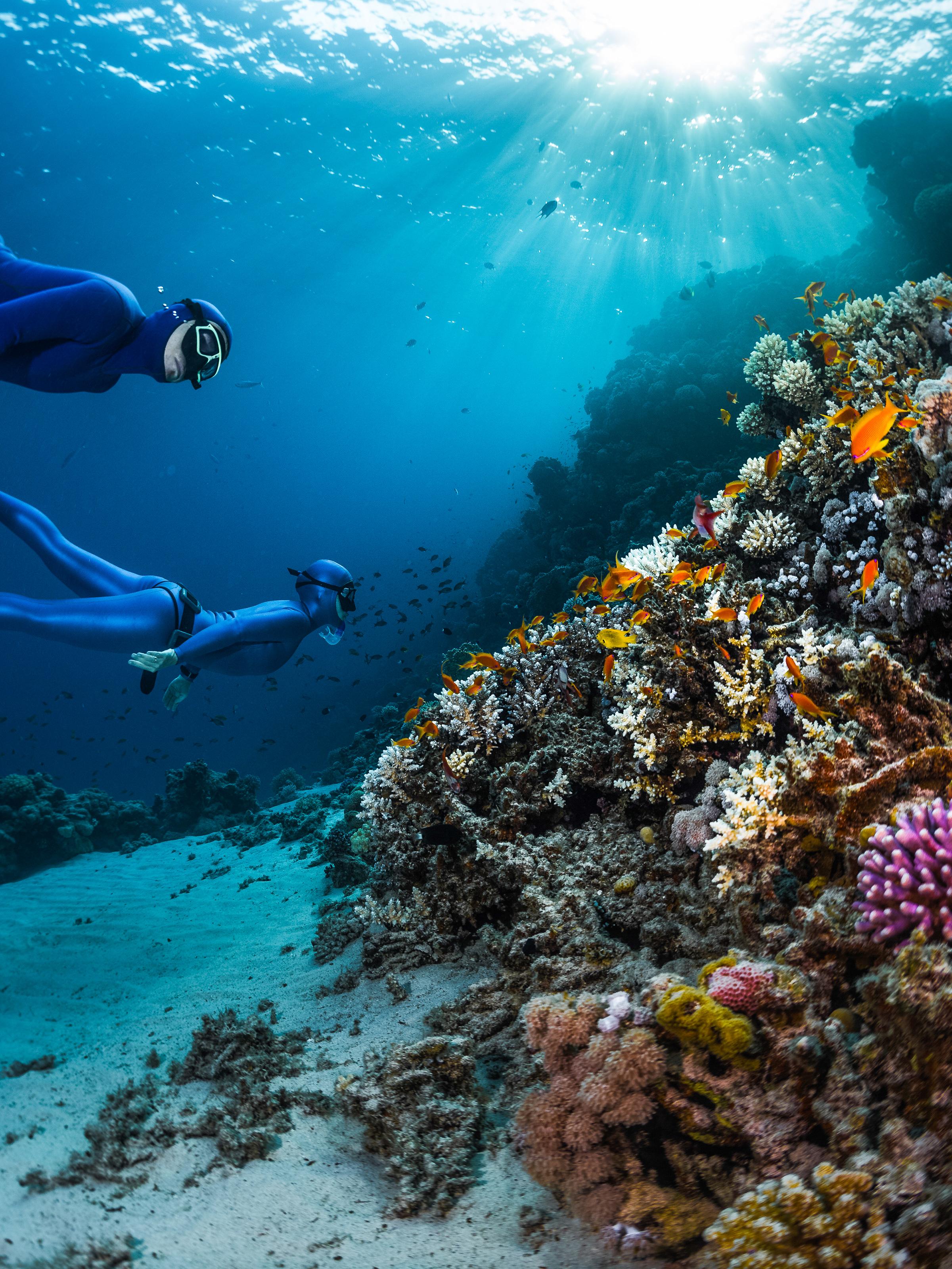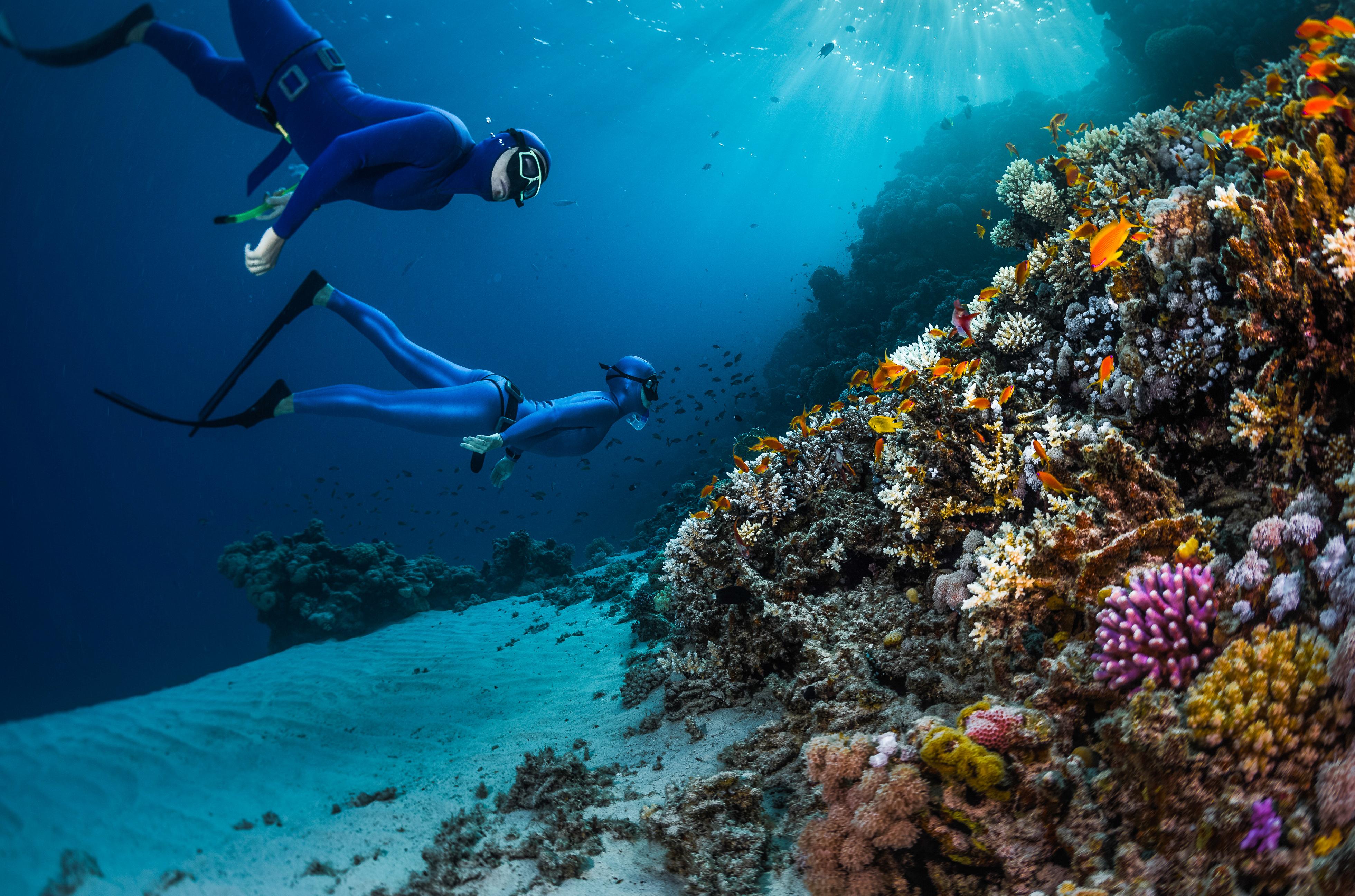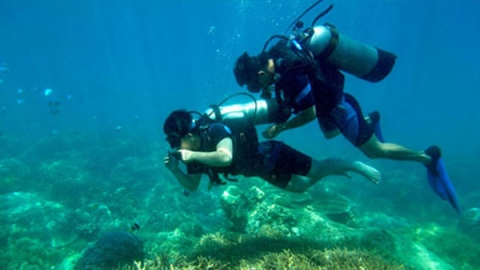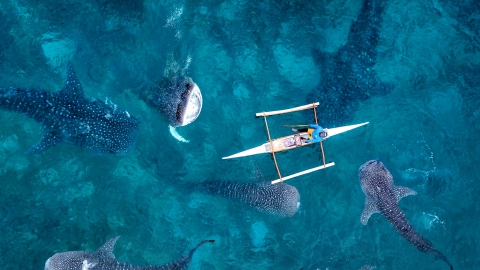Scuba diving to see coral reefs is an exciting experience that has become a popular choice for many tourists in recent years. What could be more exciting than exploring the "vibrant forest" at the bottom of the sea, with its coral reefs and incredibly unique, colorful fish? Vietnam's seas have many coral reef areas that thrive and form large communities, such as Phu Quoc, Cat Ba, and Quang Nam... making these areas attractive destinations for scuba diving enthusiasts.
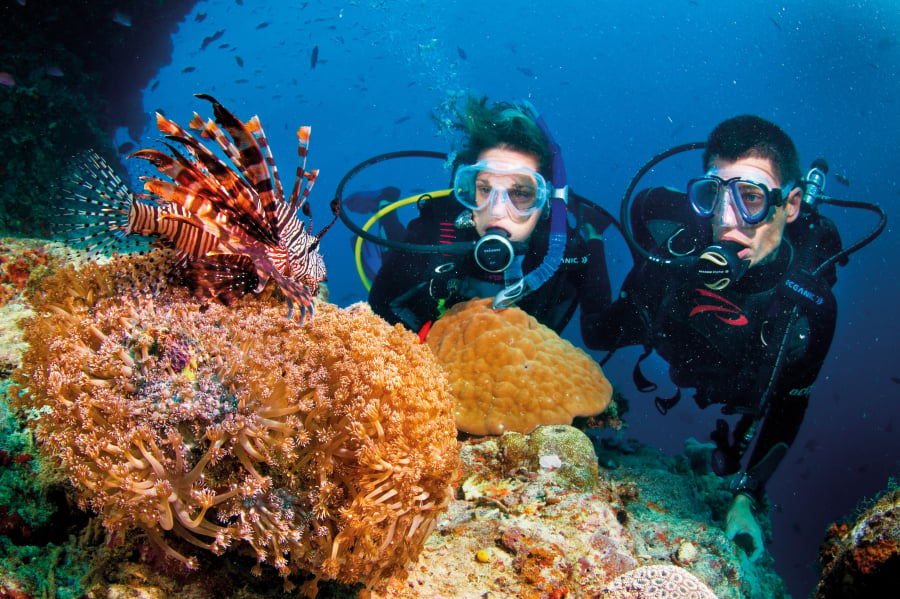
However, the sad reality is that coral reefs in some areas are declining in both quantity and quality due to the impact of tourism activities. Coral reefs are not only beautiful sights but also provide habitat and food for many species of fish and marine animals. Furthermore, they support humans by acting as a protective barrier for coastlines, preventing large waves, storms, and flooding. They are also a source of livelihood for generations of fishermen, for tourism companies offering snorkeling and diving tours, and, on a larger scale, for tourism in countries and globally.
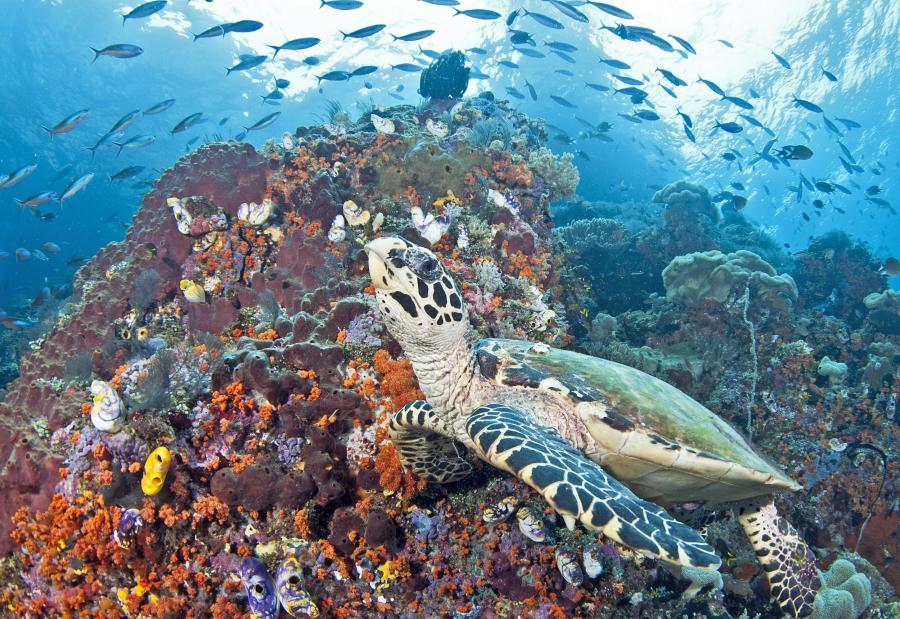
Because of its crucial importance, everyone traveling needs to be mindful of protecting coral reefs. However, you might be surprised to learn that even the smallest actions you take while traveling can contribute to protecting this species.
Choose ecotourism tours or volunteer tourism.
The trend of green tourism and ecotourism has been developing strongly in recent years as tourists become increasingly aware of environmental protection and sustainable tourism. In addition, volunteer tourism activities are gradually becoming popular, combining sightseeing, relaxation, and exploration with charitable and volunteer activities to protect the environment. Several tourist regions in Vietnam have already organized beach cleanup activities, notably Da Nang, Quang Nam, Kien Giang, and Ninh Thuan.
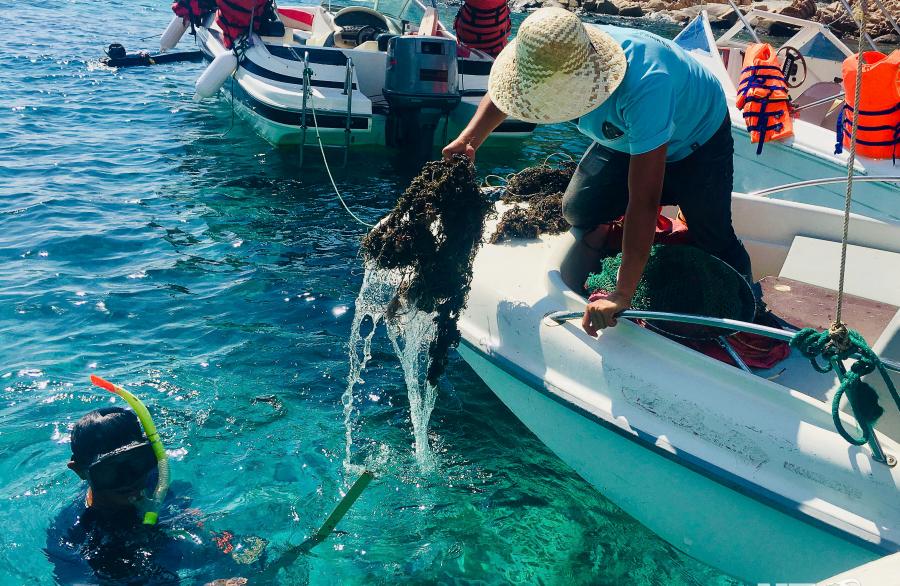
Volunteer tourism activities include scuba diving and trash collection in Vinh Hy Bay, Ninh Thuan.
Therefore, when traveling this summer, choose and support companies that organize ecotourism and volunteer tourism tours. Experienced tour guides on these trips will have many interesting things to share with you, from environmental pollution, rising sea temperatures, and climate change to how human fishing activities are rapidly weakening coral reefs.
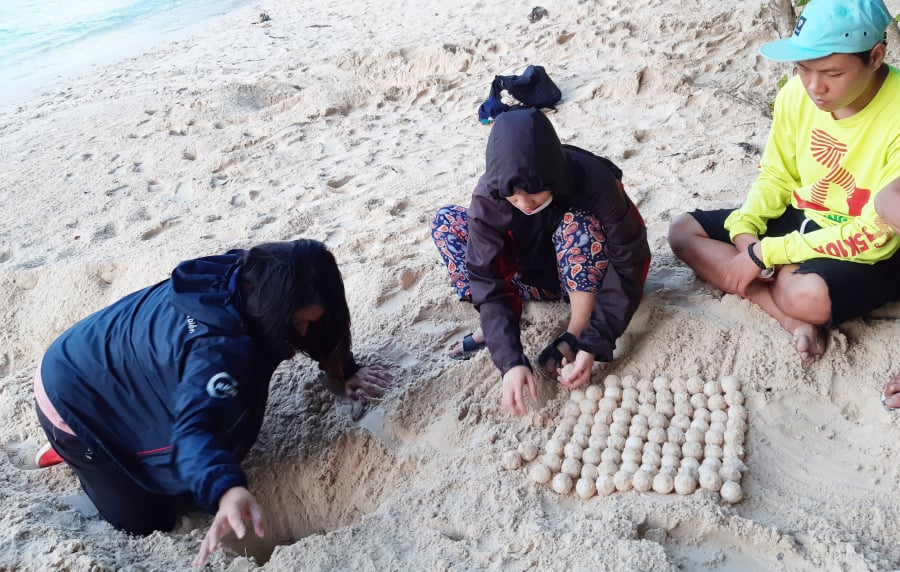
Ecotourism participates in supporting sea turtles to lay eggs in Con Dao.
Gather thorough information about the sea area you are going to visit.
Due to the urgency and overwhelming demand, many destinations have updated information and guidelines for tourists on codes of conduct to ensure environmentally friendly travel. In some island nations famous for their coral reef ecosystems, tourists are often required to sign pledges to abide by regulations when participating in tourist activities and face hefty fines for violations. A prime example is Cu Lao Cham Island in Quang Nam province, which has implemented a policy of not using plastic bags for many years and requires visitors to also adhere to this rule to protect the marine environment.
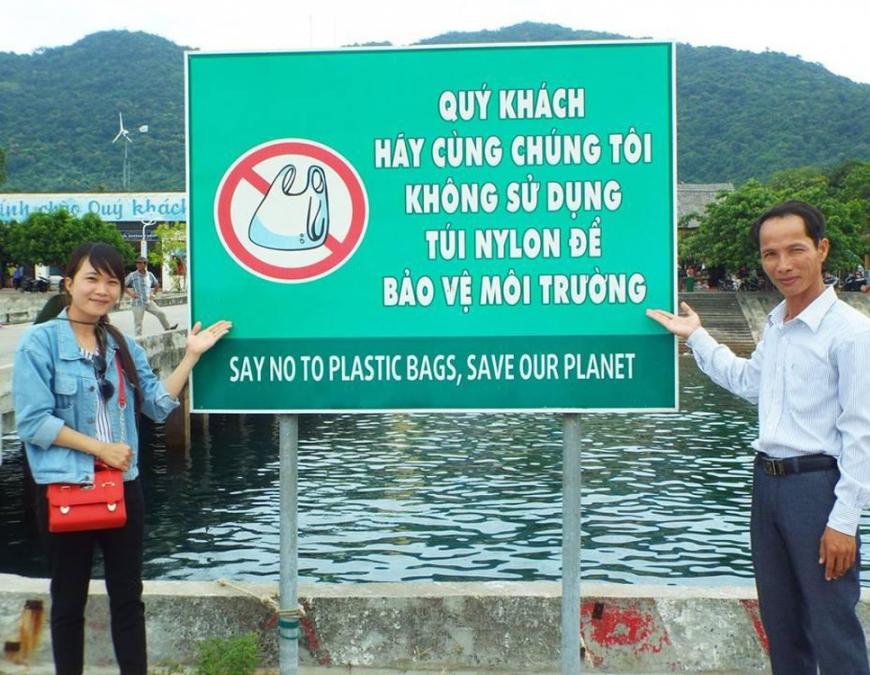
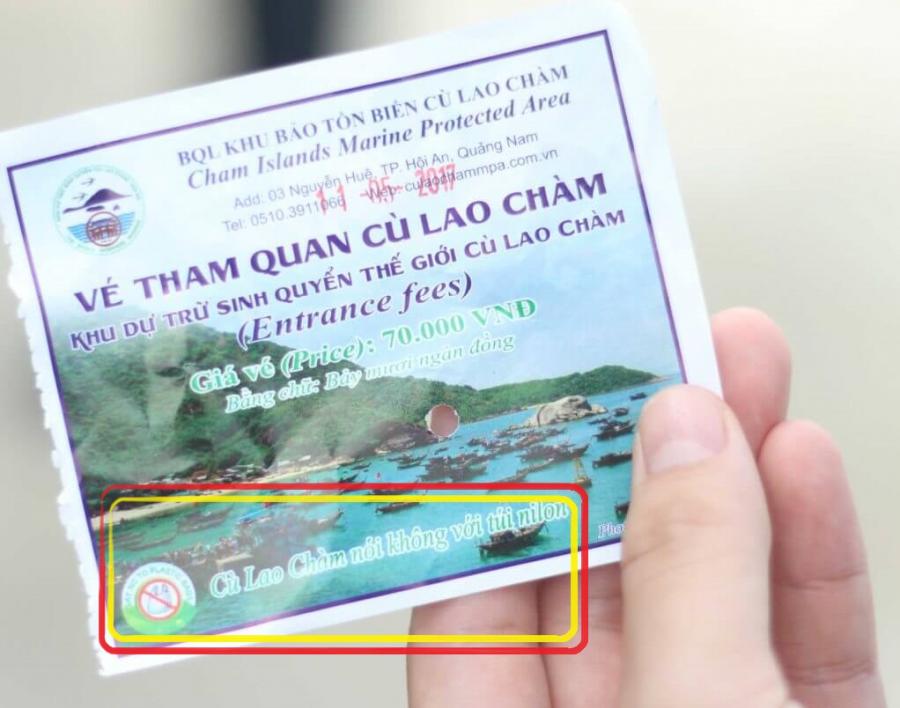
Therefore, before traveling, take some time to check the travel websites of your destination to get complete information about sustainable tourism initiatives, volunteer activities, and regulations and commitments to environmental protection.
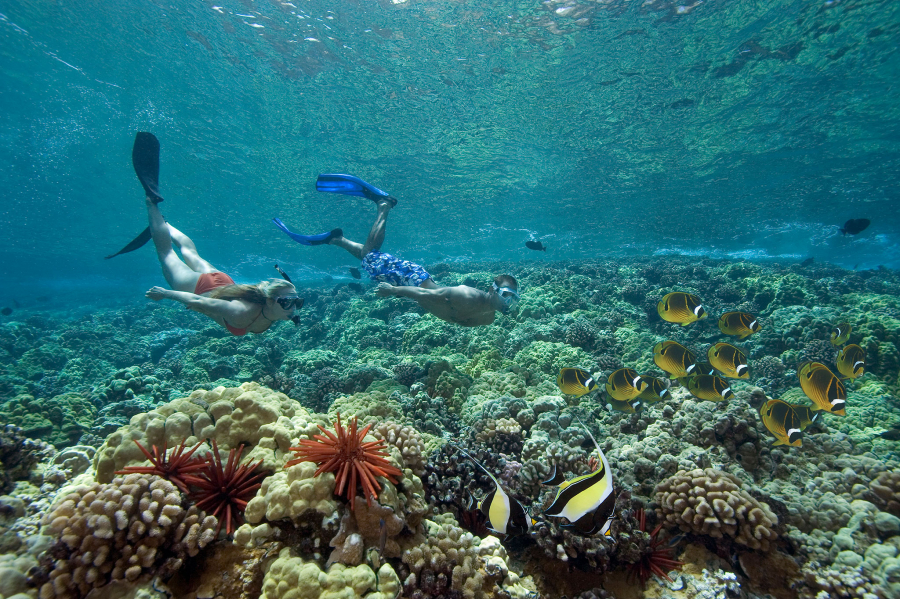
Minimize plastic waste while traveling.
When packing for a trip, remember to bring essential items such as a personal water bottle, reusable toiletry bags, toiletries, etc., to minimize the amount of single-use plastic waste that you buy along the way or use at the hotel.

Choose to use "plastic-free" products.
Because most of this single-use plastic waste ends up in the oceans, severely harming marine life, littering while traveling and reducing your own plastic waste consumption is a simple way to protect coral reefs.
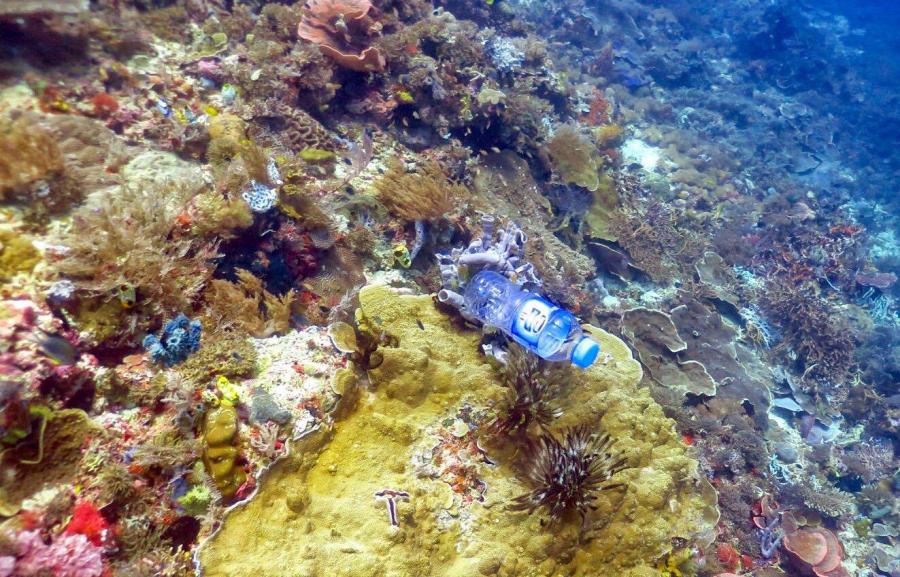
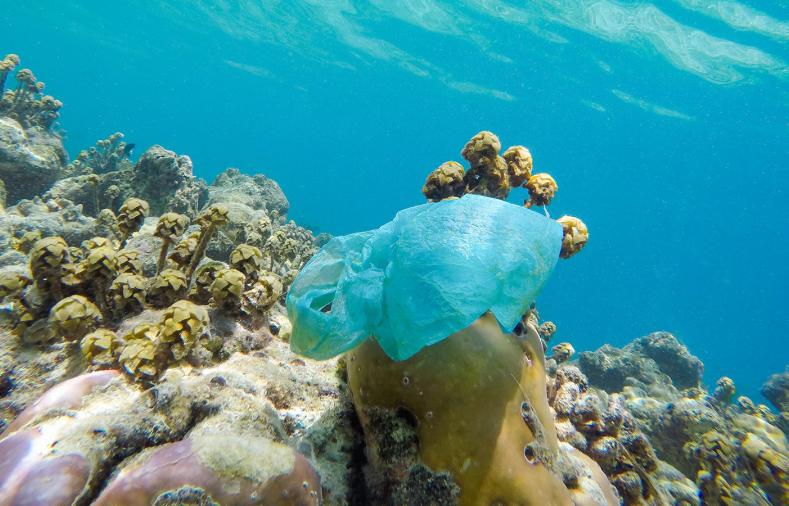
Use environmentally friendly cosmetics.
The most typical cosmetic product when going on a beach vacation is sunscreen! Many sunscreens contain substances harmful to the marine environment and coral reefs, such as oxybenzone, avobenzone, or octinoxate. These substances are often found in chemical sunscreens and can cause coral bleaching, as well as directly affecting the skin and shells of other marine creatures.
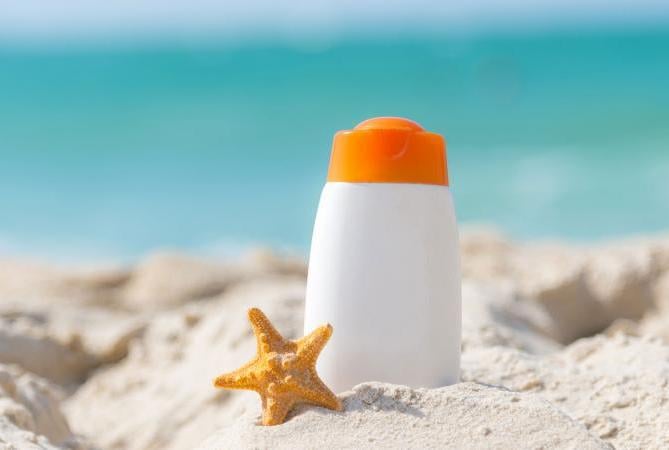
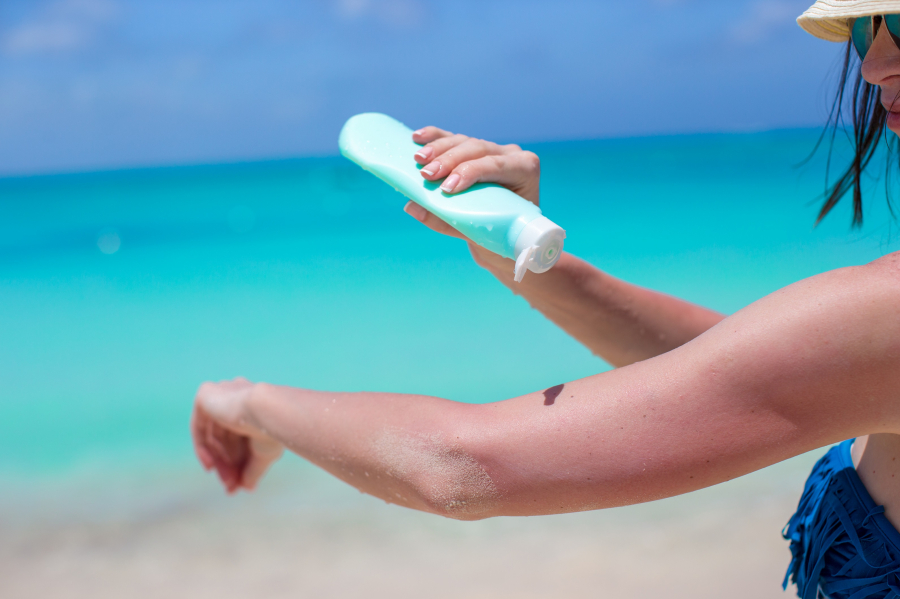
It is estimated that Hawaii's coastal resorts release approximately 2.7 tons of sunscreen into the water each year due to diving and swimming activities. Therefore, Hawaii (USA) and the Pacific island nation of Palau were among the first to tighten regulations on sunscreens containing banned substances. You could even face fines of up to $1,000 and criminal prosecution for intentionally bringing, selling, or using sunscreen containing banned substances in Palau. Therefore, choose physical sunscreens that do not contain banned substances to significantly contribute to coral reef protection in the places you visit.
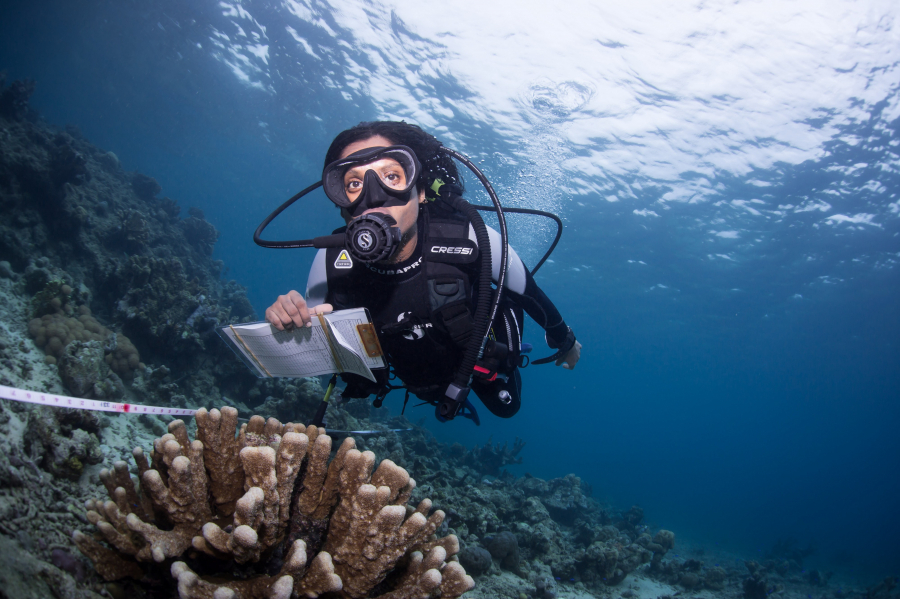
Coral reefs are gradually being "bleached" due to the effects of sunscreen.
Furthermore, limiting the use of shampoo or body wash in beach shower areas is a small but crucial step to prevent water pollution on beaches.
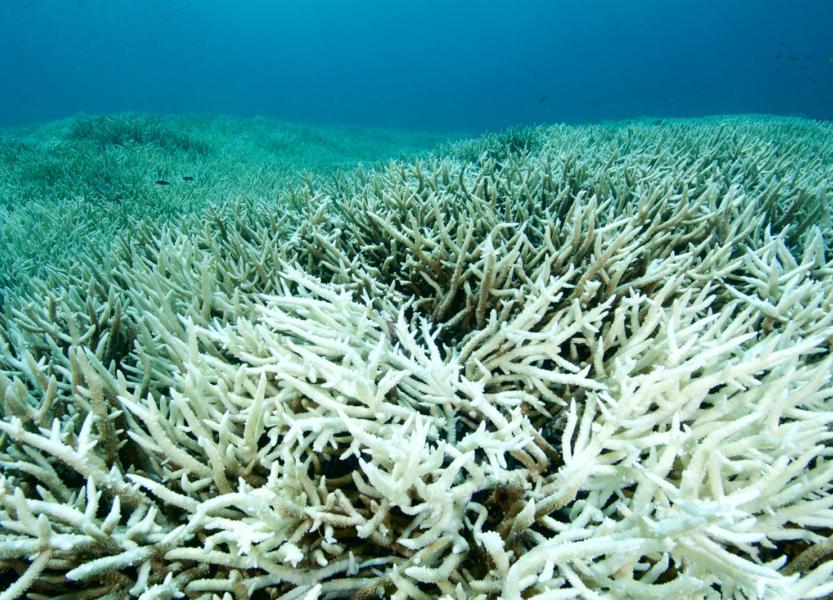
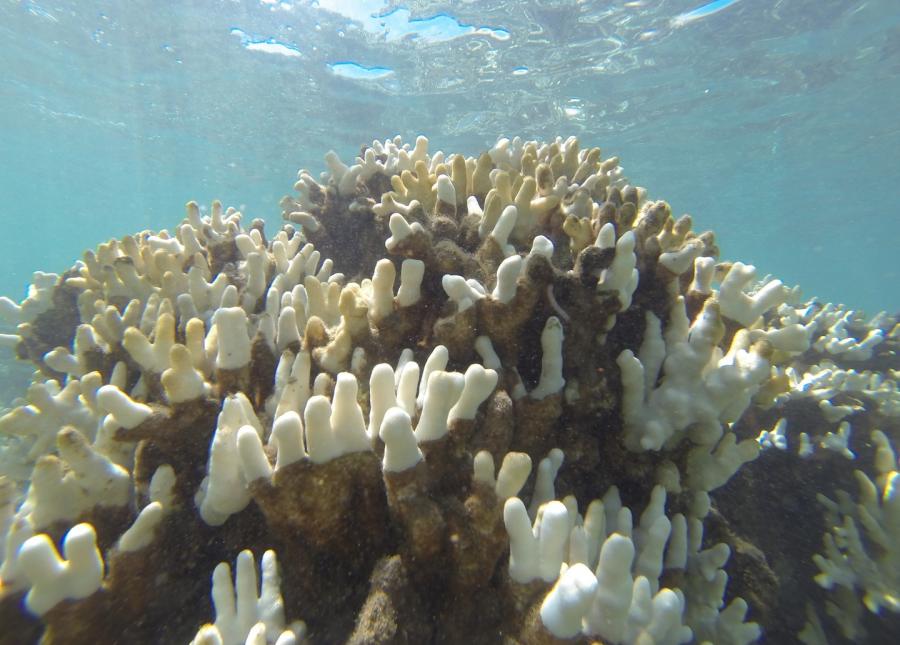
Reject items made from coral.
One of the reasons coral is harvested is for souvenirs for tourists or for the aquarium business. In fact, many people don't know that coral is a living organism, and the high demand for it has fueled the destruction of this ecosystem.
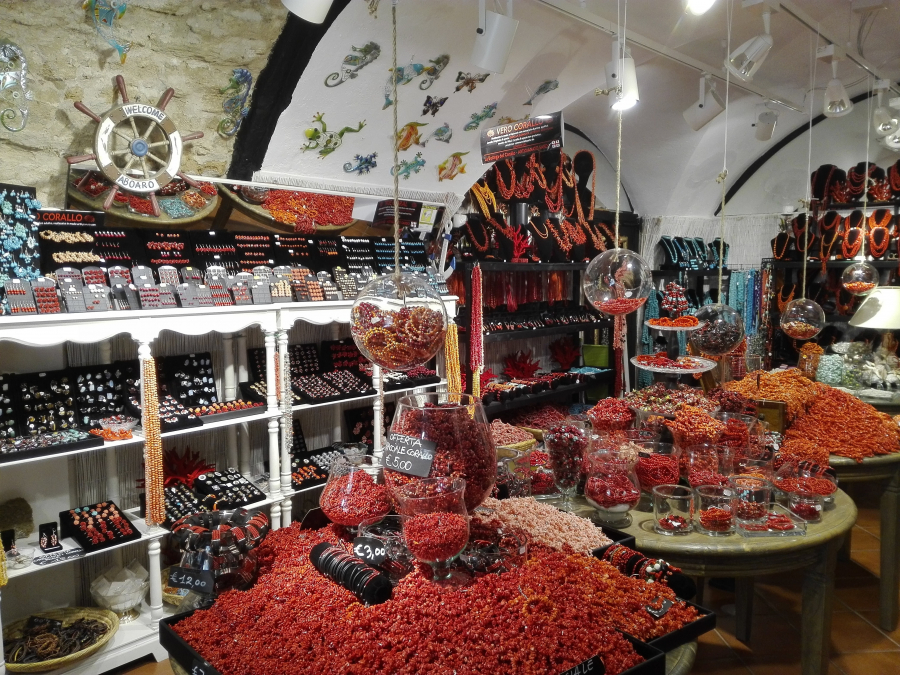
Reject coral products.
It's not just coral; tourists buying fish, starfish, and other natural products also threatens these species. Be a responsible tourist by refusing souvenirs made from coral or other marine life. When these items can no longer be sold, exploitation will decrease rapidly.

Do not touch the coral.
Finally, when scuba diving or snorkeling, avoid even the slightest impact on the natural environment. This typically means not touching or stepping on coral reefs. Scientists advise tourists and divers to maintain distance from coral because simply using scuba gear or searching for shells can stir up sediment and suffocate coral.
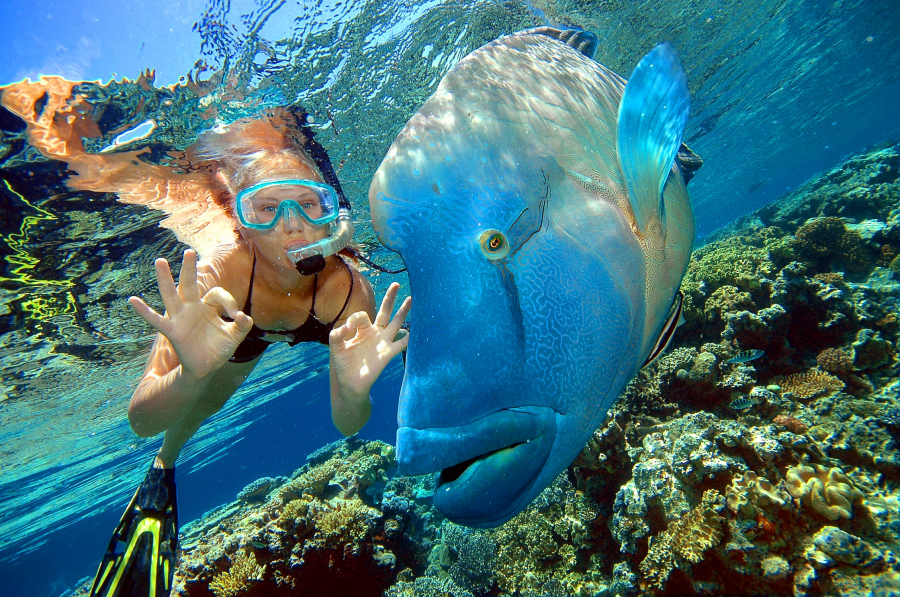
Even dead or faded coral should not be touched, as these are often shelters for other marine life. You should only admire or photograph coral reefs from a distance of 20-30 cm.
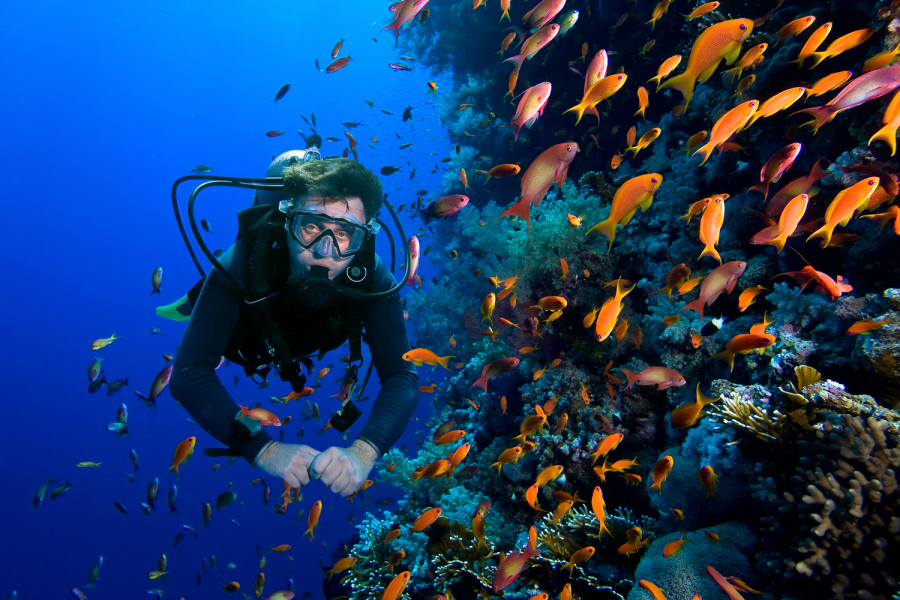
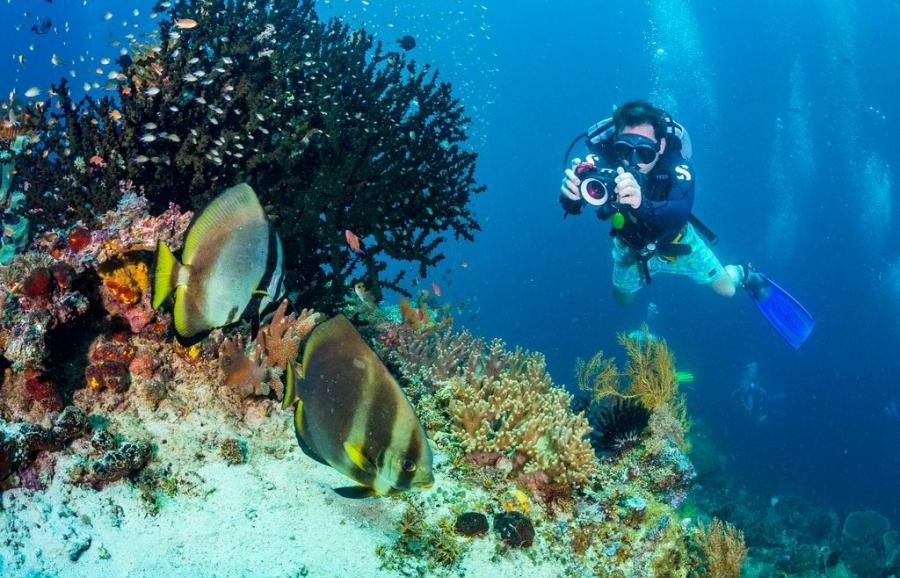
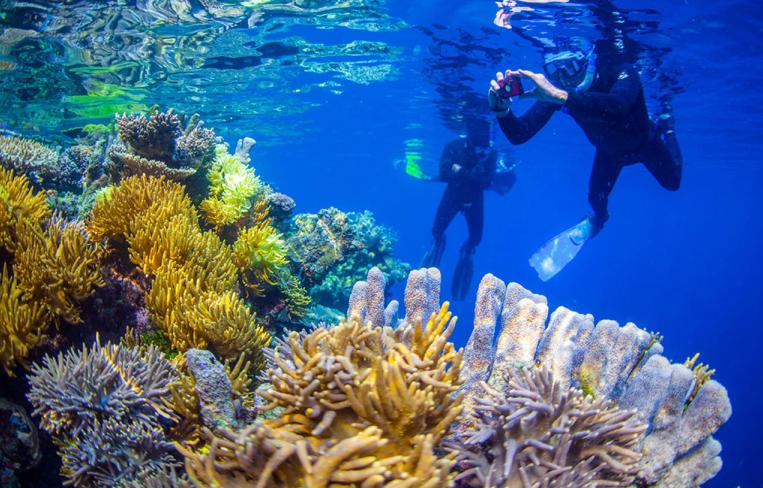
Boats can also cause serious damage to coral reefs in shallow waters. If you are using a personal boat, protect the coral by using mooring ropes or only dropping anchor in areas with sand.
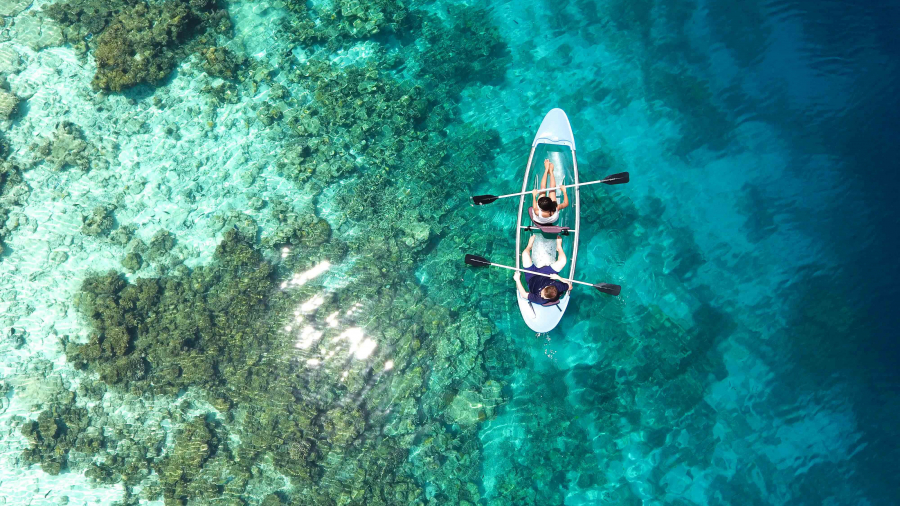

 VI
VI EN
EN



